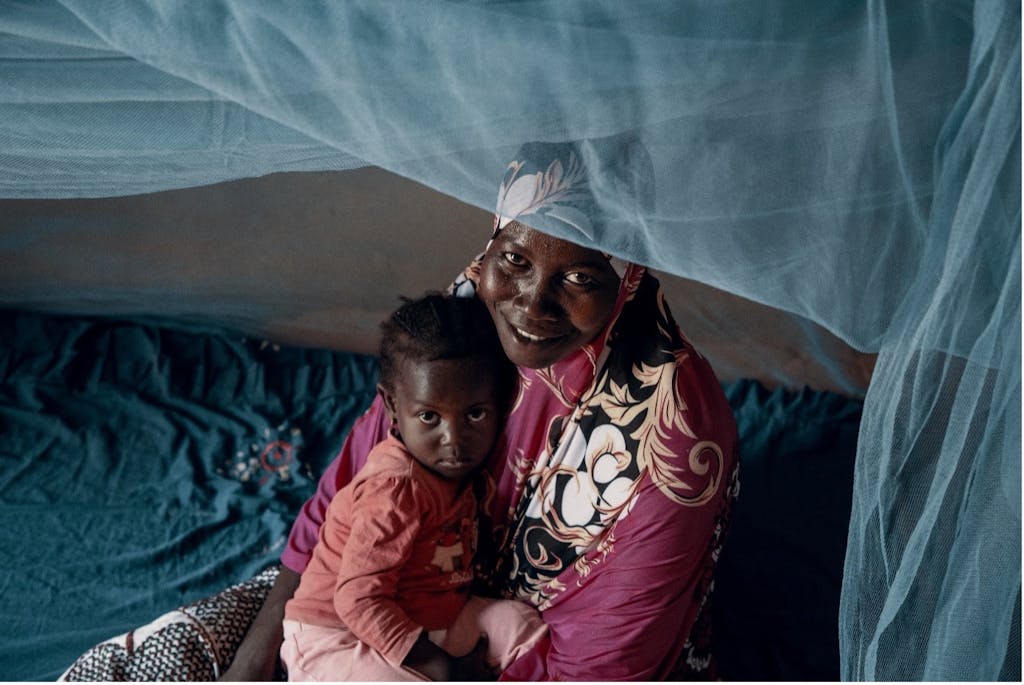World Mosquito Day today marks the 1897 discovery by Sir Ronald Ross that female Anopheles mosquitoes spread malaria. Since that breakthrough, the world has fought this deadly disease through scientific research and new technology. While astounding progress has been made against the ancient disease, more than 400,000 people died from malaria in 2019, two-thirds of them children under 5, the vast majority in Africa.
Existing malaria controls such as spraying insecticides indoors or sleeping beneath long-lasting insecticidal bed nets work by blocking mosquitoes from biting people and transmitting malaria. Such tools have helped halve malaria in many countries throughout sub-Saharan Africa. Yet this remarkable progress is in jeopardy as mosquitoes develop resistance to these insecticides. As the dangerous mosquito continues to adapt, health interventions must continue evolving to protect families from this disease and move us closer to a malaria-free world. Now, there is a promising new tool, seemingly ripped from the pages of a science fiction novel, to stop malaria’s spread: genetically modified mosquitoes.
Swatting Mosquitoes with Science
Genetically modified mosquitoes offer a novel tool in the arsenal of antimalarial innovations and have the potential to accelerate the global fight to eliminate malaria. In May 2021, the World Health Organization (WHO) and other partners issued revised guidance for research on these special mosquitoes to fight malaria and other vector-borne diseases.
Both gene drive and DNA bar coding technologies alter the genetic composition of mosquitoes so that local biting female mosquitoes — which spread diseases such as dengue, Zika, and yellow fever in addition to malaria — cannot breed. Preliminary research suggests that the use of altered mosquitoes could also be a cost-effective way to complement the malaria vaccines that are being piloted and evaluated by WHO in Ghana, Kenya, and Malawi.

Target Malaria, a research consortium focused on reducing malaria morbidity and mortality in five African countries, is exploring the use of DNA bar coding technology to identify a mosquito host from its blood meal. In Ghana, Target Malaria is using bar codes from insects collected in the community to create a DNA bar code library, while in Burkina Faso researchers are breeding modified mosquitoes to reduce their ability to host the malaria parasite, thereby reducing malaria cases and deaths.
In the U.S., the Florida Keys Mosquito Control District and Oxitec are piloting a landmark trial with Aedes aegypti mosquitoes. These mosquitoes make up about 4% of the mosquito population in the Keys, and they spread dengue, Zika, and yellow fever to humans. While these are not the same mosquitoes that transmit malaria, the findings from this study will inform related research on malaria-transmitting Anopheles mosquitoes.
This initiative, which was approved by the U.S. Environmental Protection Agency, involves placing and releasing boxes of 12,000 Oxitec nonbiting male mosquitoes. The insects emerge from the boxes each week for approximately 12 weeks to mate with local biting female mosquitoes. Due to the altered genes of the nonbiting male mosquitoes, female offspring will not survive. This will decrease the local population in a safe, sustainable, and environmentally friendly manner. Similar projects in the Brazilian city of Indaiatuba found that Oxitec’s mosquitoes suppressed disease-carrying Aedes aegypti by up to 95% in urban locations after 13 weeks of treatment.
Ensuring Equitable Access to Antimalaria Tools
As we look to the next decade of the fight against malaria, innovative solutions and next-generation tools show promise to speed up the elimination of malaria. But it will call for scaled-up, prioritized funding and support. Malaria-endemic countries must have access to new approaches to fighting diseases, whether it’s genetically modified mosquitoes, new insecticides for bed nets, or indoor spraying. As we have witnessed from the tragic, inequitable distribution of the COVID-19 vaccines, any new tool, drug, or vaccine to combat malaria will be effective only when it is accessible to all of the people who need it. Now is the time to strengthen political and financial commitments to ensure these innovations reach the marginalized populations who need them most.
Feature Photo: Canva








